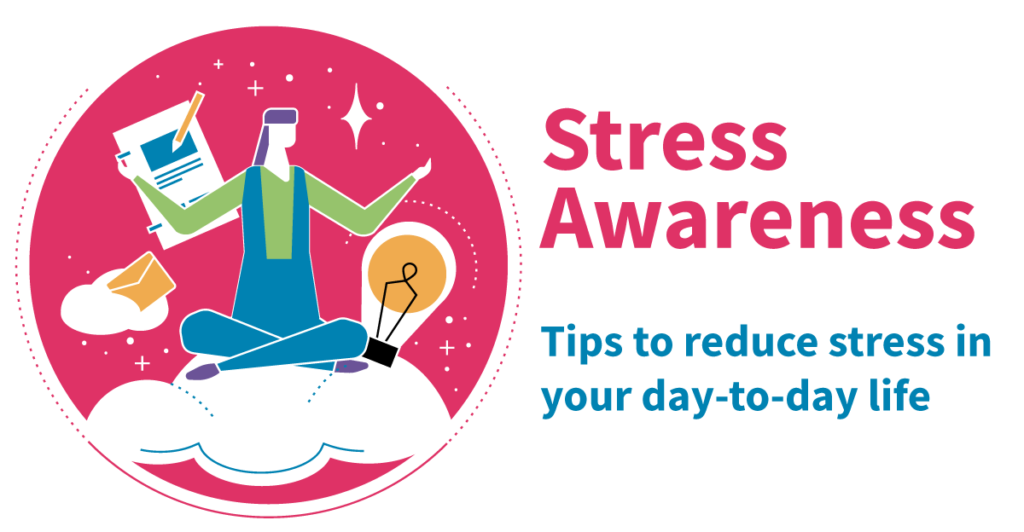Stress is more serious than you may think. Overly stressful situations can lead to symptoms such as headaches, increased blood pressure, chest pain and trouble being able to sleep. And whilst we’re in the middle of a global pandemic with the way we live day to day life had completely changed, your stress may be higher than ever.
The Facts
A UK-wide stress survey has found that almost three quarters of adults (74%) have at some point over the past year felt so stressed they felt overwhelmed or unable to cope.
– mentalhealth.org.uk (2018)
There are many things which can cause stress, from financial problems, relationships and socialising. With 39% of UK adults feeling stressed in their day-to-day lives, it is important to understand that you are not alone in feeling this way and there are things you can do to help reduce stress.

Make sure you are getting enough rest
It can vary from person to person, but the majority of people need around eight hours of good quality sleep to feel well-rested and to function properly. Without enough sleep each night, you are more likely to experience emotional and physical distress.
Continuous sleepless nights can lead to more serious symptoms and can contribute to stress and irritability in the workplace. A good night’s rest can benefit you in more ways than one, including boosting your immunity and decreasing the chance of heart disease.
When you are trying to fall asleep, disconnect from any technology. Do not be tempted to go on your phone. Instead, try something relaxing such as reading a book for 30 minutes before you plan on falling asleep.
Organise your task list
An unorganised task list can be overwhelming to look at. You may find yourself becoming more stressed each time you think about your task list. You may even find yourself avoiding starting certain tasks, which will only lead to a build-up and make the situation worse.
Organising your tasks will allow you to clearly see what you need to do and by what date each task need to be completed.
You should organise your list by due dates and high to low priority. You can use free, online tools to help you set out your task list as well as get reminders when a task needs completing. A few examples we have tried and tested include:
Trello is a free project management tool which allows you to create individual or team boards that you can add tasks too. You can assign people, change colours, add different lists and assign dates.
For tasks with a more rigorous process, Asana may be a suitable option. It is a task-oriented project management tool. It also provides the ability to work collaboratively.
Eat a well-balanced diet
Your diet and nutritional choices can impact your stress levels. Stress has been linked to increased blood sugar levels in the body so it is important to stabilise your levels as well as maintaining a healthy diet.
Fruit and vegetables are vital to a balanced diet, and it is recommended that you have 5 portions of each every day. Try to keep every portion different.
Breakfast is also just as important if you want to be able to keep focus. Starting the day on an empty stomach isn’t going to help! Try to avoid anything that has too much sugar or caffeine. Ensure you are not skipping any meals during the day.
The body has an increased demand for protein when stressed. Great sources of protein include chicken and fish. For those who do not eat meat, beans and nuts are also great options!
If you’re stressed in work – speak to your manager
If you have organised your task list and you still feel as if it is too much for you to handle, speak to your manager about it. Keeping it bottled up is only going to make it worse. If your manager is unaware of it, how are they supposed to help you with it?
Being open with your manager is an important step to improving your career. It will improve your relationship and make you feel more comfortable in the workplace.
Listen to music
Music can have a calming effect on your mind and body and help reduce stress. It can also create a more fun workplace whilst you are completing your tasks. 65% of businesses say that music in the workplace makes us more productive. Try listening to music whilst working to see if it improves your productivity and motivation.
Take a break
A recent study found that a third of UK employees never leave their workplace after they arrive in the morning. More than half don’t even take their full lunch break. (source)
Do you find yourself over-working and not taking breaks often? If you do not take your a break, you will start to feel even more stressed because you are working non-stop.
When you are on your break, switch off from activities that may be causing stress and take the moment to relax.
Focus on one task at a time
Switching between tasks can make you seem like you have a lot more things to do than you think you have. Giving all of your focus on one task at a time will help you to complete them faster because you aren’t being distracted by other activities.
Ask for help
You don’t need to go through this feeling alone. You can talk to friends, family, colleagues, and there’s a range of many professional services available to help. Maybe you need a hand with your workload from your team members, some extra help looking after the family or financial support. Whatever it is, do not keep it to yourself and address the issues as early as possible so that they do not get worse.
As we re-enter another lockdown, you may find out Managing Your Mental Health During Lockdown article useful.
And if you’re are working from home, you may find our Effective Ways to Keep Morale & Productivity High article useful.
If things seem too much, please reach out to either our designated safeguarding team or many of these helplines that offer free and confidential support.


